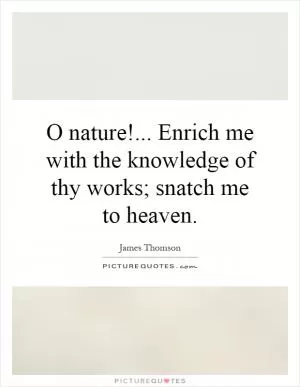The very dead creation from thy touch assumes a mimic life

The very dead creation from thy touch assumes a mimic life
James Thomson, a Scottish poet and playwright, is best known for his work "The Seasons," a series of four poems that celebrate the beauty of nature and the changing of the seasons. In his poetry, Thomson often explores the relationship between humanity and the natural world, highlighting the interconnectedness of all living things.One of the most striking lines in Thomson's work is "The very dead creation from thy touch assumes a mimic life." This line captures the idea that even in death, there is a sense of life and vitality that can be found in the natural world. Thomson suggests that through the power of creation, even the most lifeless objects can come alive in some way.
This concept is central to Thomson's poetry, as he often portrays nature as a living, breathing entity that is constantly in motion and evolving. In "The Seasons," Thomson describes the changing of the seasons as a kind of rebirth, with each new season bringing new life and energy to the world.
Thomson's use of the word "mimic" in this line is particularly interesting, as it suggests that the life that is assumed by the dead creation is not genuine or permanent. Instead, it is a mere imitation of life, a fleeting moment of vitality that is ultimately unsustainable. This idea speaks to the transient nature of life and the inevitability of death, even in the natural world.
Overall, Thomson's poetry is a celebration of the beauty and power of nature, as well as a meditation on the fragility of life and the inevitability of death. Through his vivid imagery and evocative language, Thomson invites readers to contemplate the interconnectedness of all living things and the cyclical nature of existence. In "The very dead creation from thy touch assumes a mimic life," Thomson captures the essence of this philosophy, reminding us of the delicate balance between life and death in the natural world.












 Friendship Quotes
Friendship Quotes Love Quotes
Love Quotes Life Quotes
Life Quotes Funny Quotes
Funny Quotes Motivational Quotes
Motivational Quotes Inspirational Quotes
Inspirational Quotes